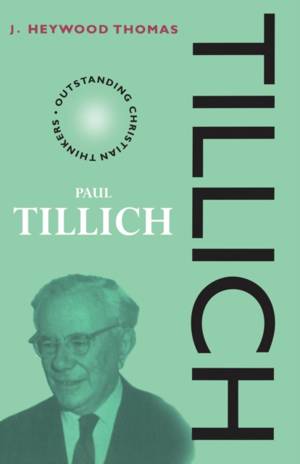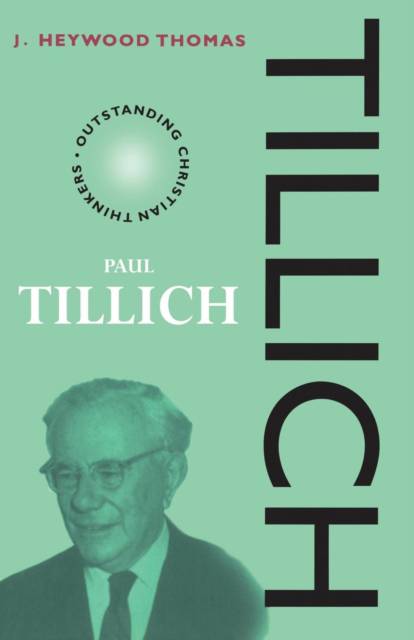
- Afhalen na 1 uur in een winkel met voorraad
- Gratis thuislevering in België vanaf € 30
- Ruim aanbod met 7 miljoen producten
- Afhalen na 1 uur in een winkel met voorraad
- Gratis thuislevering in België vanaf € 30
- Ruim aanbod met 7 miljoen producten
Omschrijving
Paul Tillich (1886-1965) was a remarkable theologian who was as much at home in a philosophical discussion as he was in the pulpit, and as keenly interested in art and politics as in his life-work as a professional theologian. Tillich's attacks on Nazism led to the banning of his books, his dismissal from Frankfurt University, and ultimately his departure for the United States in November 1933. His many points of contact with key thinkers in theology and philosophy (including Heidegger, Otto, Bultmann, Adorno and Barth) make him a compelling figure for those interested in the history of ideas in the Twentieth Century.J. Heywood Thomas critically reviews the philosophical background to Tillich's theology, including his debts to Schelling, Kant, and Husserl. He surveys Tillich's achievement as a philosophical theologian, examining his ontological approach to Christology and salvation, and his understanding of the church as a spiritual community. Thomas concludes with an exploration of Tillich's contribution to the changed situation of theology today.
Specificaties
Betrokkenen
- Auteur(s):
- Uitgeverij:
Inhoud
- Aantal bladzijden:
- 164
- Taal:
- Engels
- Reeks:
Eigenschappen
- Productcode (EAN):
- 9780826450838
- Verschijningsdatum:
- 13/12/2000
- Uitvoering:
- Paperback
- Formaat:
- Trade paperback (VS)
- Afmetingen:
- 138 mm x 217 mm
- Gewicht:
- 281 g

Alleen bij Standaard Boekhandel
Beoordelingen
We publiceren alleen reviews die voldoen aan de voorwaarden voor reviews. Bekijk onze voorwaarden voor reviews.







